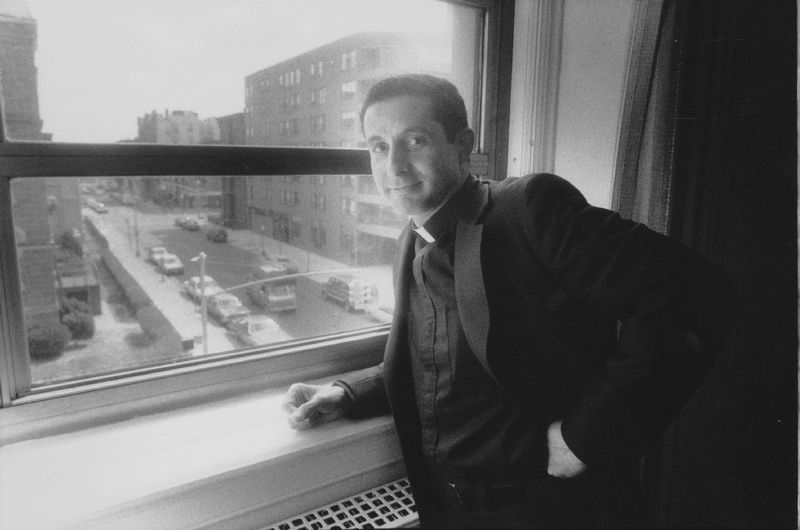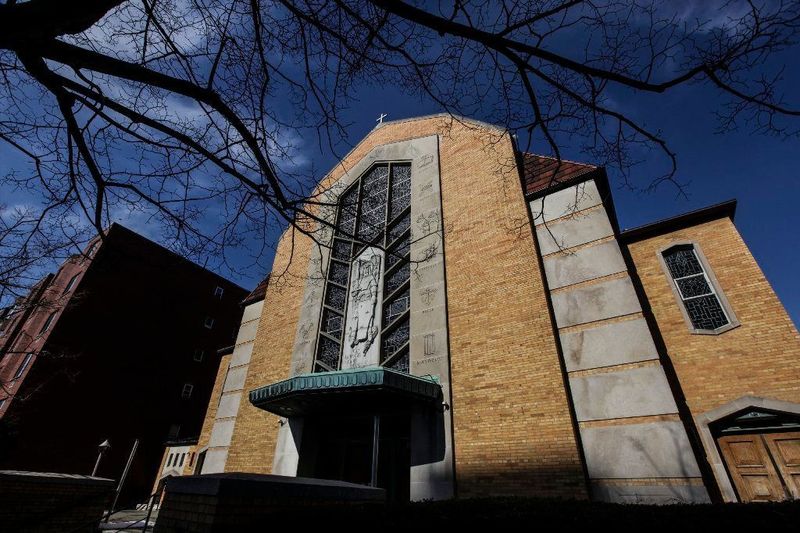Monsignor Otto Garcia Was Tasked with Handling Pedophile Priests in the Brooklyn Diocese — but Now a Man Is Accusing Him of Abuse
By Linda Stasi and Dan Gold
Garcia says he never abused the boy and said he was surprised when the allegations arose years later. When asked if perhaps Davis had misinterpreted the contact, and whether any other touching ever took place, Garcia said, “Not that I recall. Nothing.” He also insisted there had “never” even been an informal complaint about him. “I had so little contact with him that I didn’t know him at all,” said Garcia, stating that he didn’t believe Davis ever even worked in the rectory. A secretary at St. Michael’s, however, confirmed that Davis did in fact work there in the 1970s. While Garcia has not been previously accused of sexual abuse, he has faced numerous accusations that he helped to cover up misconduct in the diocese. A 2003 lawsuit alleged that Garcia “knew of the acts of sexual abuse” by other priests and “was part of the concerted effort to fraudulently conceal their acts from the plaintiffs and parishioners in the parish churches in the diocese.” The case was eventually dismissed because the statute of limitations had run out. When dozens of child sexual abuse cases were exposed in the Diocese of Brooklyn in the early 2000s, it was Garcia — first as chancellor, then as vicar general — who helped to wash the cases away, according to previous reports and people who came forward to report abuse. Garcia was tasked with meeting with alleged victims and confronting abusive priests, making recommendations to Bishop Thomas Daily, whose earlier failures to address pedophile priests in the Archdiocese of Boston would be exposed through numerous lawsuits and reporting by the Boston Globe’s “Spotlight” team.
Sister Sally Butler, a longtime Brooklyn nun, told The News this week that Garcia personally covered up multiple sex abuse complaints involving other priests — including three cases in which she reported that kids were abused. She described going with the two other nuns to meet with Garcia and his lawyers at the Chancery to discuss the complaints — but she said they only received lip service. “He dismissed us as unimportant. He told us it would be taken care of. He said that to everybody. He was compelled to cover everything up,” she said. Dennis Brown — Davis’ best friend from St. Michael’s who also claimed to be a victim of sexual abuse at the same time as Davis, in the same parish but by a different priest — was to be the lead plaintiff in the 2003 lawsuit with 42 other victims alleging sexual abuse in the diocese. But he committed suicide by drinking antifreeze days before the lawsuit was to be filed. “That case haunts me to this day,” Michael Dowd, the attorney for the plaintiffs, told The News. “The devastation to these people’s lives are beyond anything you can imagine.” Brown’s horrific death rocked Davis, too. At Brown’s wake, their schoolmates, he said, talked “around the subject” of sexual abuse but nobody went into specifics. Davis says he finally broke free of Garcia’s alleged abuse when he got a job bagging groceries at a local supermarket, which gave him an excuse to quit the rectory job. He didn’t come forward then, he says, because his parents held Garcia in such high esteem — and because of Garcia’s incredible power within the church. “I was scared,” he said. “I was just a kid, and he was a very important man. He comes from a very wealthy and influential Cuban family. I was a perfect victim, and he was the perfect predator. He knew I couldn’t tell anybody what was happening to me.” Later, as an adult, Davis worried that doing so would destroy his career as the head plumber at Shea Stadium. He fretted about how his family would respond, about the consequences and the fallout. In 1995 he finally confessed his secret — to his sister. A few years ago, he also told his son. Davis’ sister and son both confirmed that he had shared his story in the manner he described. Davis sobered up through Alcoholics Anonymous and went through years of therapy, and in 2016 found the strength to tell his story to a lawyer — about a year before the diocese announced the reconciliation and compensation program. He contacted attorney Mike Reck of Jeff Anderson & Associates, a firm that handles abuse cases within the Diocese of Brooklyn. At two interviews in 2017 with a diocese lawyer and a private investigator, Davis accused Garcia, who was not present, of sexual abuse. “But I felt the deck was stacked against me,” he said. “They had a total lack of interest. And the way they asked the questions? I’ve been around a lot and I know when I’m being played. I was being played.” Garcia confirmed to The News that he was questioned separately by the investigator. Information from the interviews was given to the Diocesan Review Board, which gave a recommendation and consulted with the IRCP — which found Davis’ claim not credible. “This is not a determination that your claim is fraudulent; rather that there is insufficient support to find your claim eligible for compensation,” administrators Kenneth Feinberg and Camille Biros wrote in a letter. Of the 400 cases presented to the IRCP, only 19 were found not credible, Diocese press secretary Adriana Rodriguez said.
The Queens District Attorney’s Special Victims Unit also had to reject the case because the statute of limitations had passed. Reck considers the state’s previous sex abuse laws “draconian and unfair.” Not anymore. Starting in mid-August, victims will have a one-year “look back,” meaning they will have 12 months to file a civil claim in court no matter how many years have passed. Davis and Reck plan to do just that. So does Dowd, the attorney for 42 alleged victims of priests within the Brooklyn Diocese whose cases were turned down because the statute had passed. Now, clean after decades of drug and alcohol abuse, Davis is ready to fight and determined not to give up. “I’m not looking for a payday,” he said. “I’m just trying to get (Monsignor Garcia) out of the ministry.” With Nancy Dillon Anyone wishing to report a confidential tip regarding child sex abuse to the Daily News can email childvictimsact@nydailynews.com or call 212-210-1528.
|
.
Any original material on these pages is copyright © BishopAccountability.org 2004. Reproduce freely with attribution.

